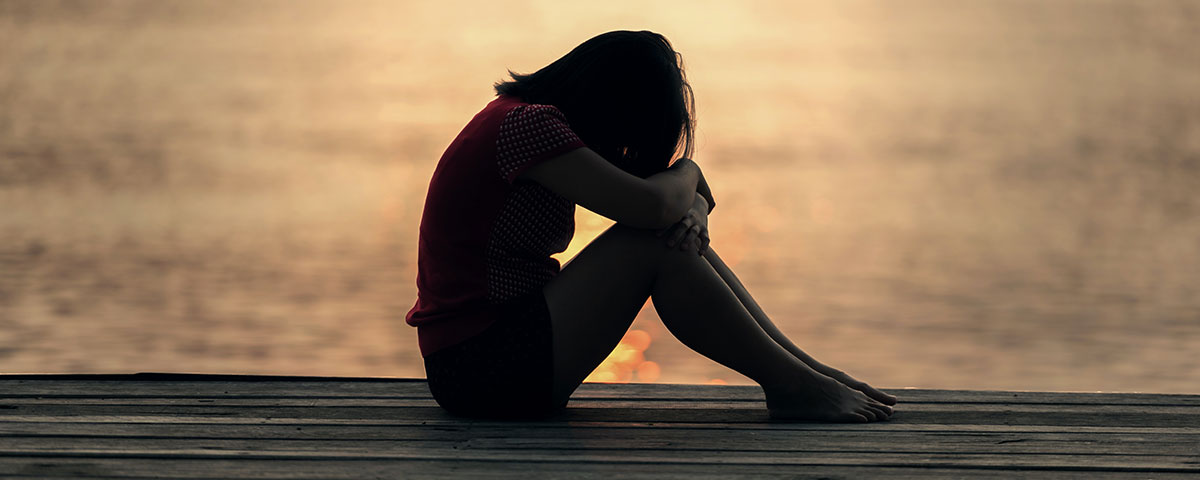Loneliness isn’t just uncomfortable and unpleasant, it’s bad for our physical and mental health.
And loneliness has become so common — affecting at least half of all adults in the United States — that the U.S. Surgeon General considers it an urgent public health concern, worthy of a government advisory issued in May 2023.
“Loneliness is far more than just a bad feeling,” Surgeon General Dr. Vivek H. Murthy writes. “It harms both individual and societal health. It is associated with a greater risk of cardiovascular disease, dementia, stroke, depression, anxiety and premature death.”
Loneliness already feels bad, so you don’t need to make yourself feel worse for being lonely. The irony is that you’re not alone in your loneliness — according to a 2019 survey of 10,000 U.S. adults, about 60% of people in the U.S. report feeling lonely on a regular basis.
So, what is loneliness exactly, why is it so harmful, and what can we do about it?
What is loneliness?
Loneliness isn’t about being alone. We can live with others or be surrounded by people and still be lonely. That’s because loneliness is a subjective, internal feeling.
“It’s the distressing experience that results from perceived isolation or unmet need between an individual’s preferred and actual experience,” Dr. Murthy writes in his advisory.
Loneliness is that feeling that there’s no one who really knows us or understands what we’re going through; that if we were to disappear, nobody would really care.
It’s different from social isolation, which is also a growing problem in the U.S. Social isolation is when we objectively have few social relationships or social interactions. It can result from changes in our circumstances, such as moving to a new city where we don’t know anyone, or leaving a job where all our socializing took place.
According to studies, both loneliness and social isolation can increase the risk of premature death by 26% to 29%.
Why are loneliness and social isolation so bad for us?
Human beings evolved as a communal species. Our ancient ancestors were hunter-gatherers who lived in groups and relied on those communities for safety and survival. We are hard-wired for connection with other people and feel safest when we’re together.
In hunter-gatherer times, separation from others was a serious source of stress, because an isolated human was unlikely to survive very long on their own. Loneliness and isolation still cause stress to the human system today.
“As much as our circumstances are very different today than they were in our hunter-gatherer days, our brains and our nervous systems are still very similar to how they were back then,” Dr. Murthy said at a mental health conference at UCLA in May 2023. “That’s why we see such an impact of loneliness and disconnection on physical illness and mental illness. This is much more than just a bad feeling. Our social connections are something we need for our survival, for our well-being, and we need to treat them as such.”
Social connection is essential to human well-being. The Harvard Study of Adult Development, one of the world’s longest studies of adult life, finds that satisfying relationships are key to happiness, health, and longevity.
Meanwhile, lacking social connection can be as damaging to health as smoking 15 cigarettes a day. Loneliness is a risk factor for deaths from all causes, including deaths caused by disease.
Citing dozens of studies, the Surgeon General’s advisory warns that social isolation and loneliness can lead to higher risk of:
- Heart disease
- Stroke
- High blood pressure
- Diabetes
- Dementia
- Depression
- Anxiety
- Suicidality and self-harm.
What can we do about loneliness?
There are things you can do to reduce your loneliness and foster deeper social connections.
Here are some ways you can reduce loneliness right now:
- Pick up the phone: Call or text a friend you’d like to connect with. Even if it feels weird and even if it’s been a while, spending just a few minutes a day reaching out to loved ones can make a difference in our loneliness levels.
- Reduce distractions when spending time with others: It can be tempting to multitask while talking on the phone with a friend or family member, but you’ll feel closer and more enriched by the connection if you focus on the conversation.
- Join a group: Beach Cities Health District offers classes and workshops for residents of all ages, including Moai social groups that get together regularly for walks, potlucks and conversation.
- Start a group: Not a joiner? Be a starter! Create your own gathering around something you enjoy. Get friends together for a monthly hike or book club, a weekly bike ride or beach walk or anything that sounds like fun.
- Reduce social media use and screen time: Make time for in-person connections by setting devices aside — or use those devices to actually call or video chat someone. Hearing a loved one’s voice or seeing their face creates stronger bonds than just texting or messaging. Using social media may contribute to a sense of loneliness, especially among young adults.
- Talk to strangers: Making conversation with the checkout clerk at the grocery store or the person next to you in line can lift both people’s spirits and make us feel more connected.
-
Volunteer: Finding ways to support others also helps us feel connected. Volunteering has been found to protect against loneliness and social isolation. Volunteers who visited lonely older adults ended up reducing their own loneliness as well. You can start with some of BCHD’s volunteer opportunities.Ask for help: Loneliness is common and fixable. Letting a loved one (or health care provider) know you’re feeling lonely creates more opportunity for connection. Need help? Check out local resources or call BCHD’s Assistance, Information and Referral Line at 310-374-3426, option 1.




